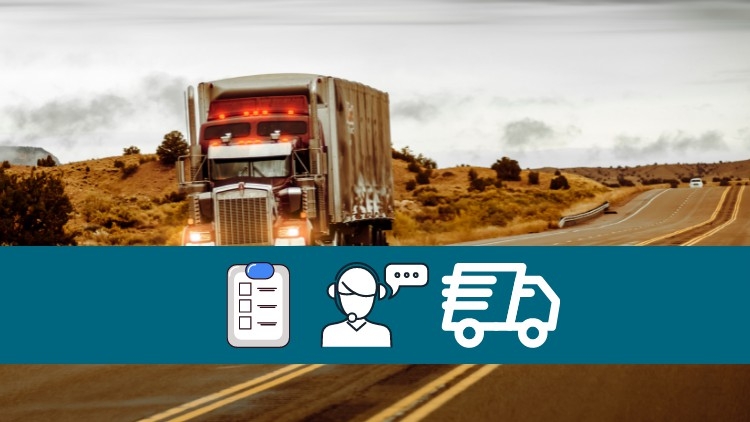Required Truck Dispatcher License

Truck dispatchers must have knowledge, abilities, and typically licenses or certifications to coordinate shipments and logistics. Those interested in truck dispatching must know the licensing requirements.
How to Become a Dispatcher for Trucks - In addition to schooling, many businesses prefer or need transportation experience. Driver, dispatcher assistant, or equivalent experience counts. Candidate knowledge of transportation operations, logistics software, and industry rules may boost career prospects. A dispatching training program is optional yet useful. These vocational, community college, or online programs cover dispatching software, route planning, customer service, and industry best practices. Following certain programs, candidates may be certified, boosting their reputation and marketability.
The most popular license or qualification is a commercial driver's license. Dispatchers may not drive trucks, but a CDL shows they understand commercial vehicle operations and laws. It strengthens dispatchers' relationships with drivers and helps them comprehend their issues. Based on their specialty or employer's activities, dispatchers may require extra credentials. Hazardous materials dispatchers may require a CDL endorsement. Dispatchers handling overweight cargo may require permissions or qualifications.
Licenses and qualifications are vital, but they are not the only variables in truck dispatching success. Communicating, problem-solving, attention to detail, and working under pressure are all crucial for this profession. While there is no uniform licensing or certification for truck dispatchers, some qualities might improve a candidate's chances. Dispatchers may succeed in this exciting and dynamic field with the right education, experience, and qualifications.
Truck dispatching is a rewarding job for people who like fast-paced work and are organized and problem-solvers. These methods will help you become a truck dispatcher, whether you're starting out or switching careers:
Truck dispatchers may benefit from previous transportation sector expertise. Try driving, dispatching, or a comparable job to learn about the industry's operations, rules, and obstacles. Success in every field requires a sound education. A high school graduation or equivalent will teach you communication, numeracy, and critical thinking, which are required for dispatching.
While not required, formal dispatching training might offer you an advantage in the employment market. Find vocational, community, or online programs. Route planning, dispatching software, customer service, and industry best practices are covered in these programs. Dispatchers may not drive trucks, but a CDL may help. It shows a fundamental awareness of commercial vehicle operations and laws, helping you engage with drivers and understand their demands.
Communication skills are essential for dispatchers. Use clear, succinct verbal and written communication and excellent interpersonal skills to deal with drivers, clients, and other stakeholders. Dispatchers use software to monitor cars, handle shipments, and interact with drivers. Maintain current knowledge of dispatching tools including TruckLogics, Tailwind, and DAT Solutions and industry trends and technology.
Local, state, and federal rules govern the transportation business. Truck Dispatcher License Requirements with hours-of-service, weight, and hazardous materials standards by staying abreast of changes. Networking in the dispatching industry may help you advance. Go to industry events, join professional groups like the Transportation Intermediaries Association (TIA) or the National Association of Small Trucking Companies (NASTC), and talk to experts to learn from them.
Dispatching may be stressful and requires fast thinking and problem-solving to handle unanticipated challenges and delays. Be resilient, adaptable, and able to operate under pressure to maintain smooth and efficient operations. By following these steps and investing in your education, abilities, and industry knowledge, you may become a successful truck dispatcher and help move commodities throughout the nation.
- Industry
- Art
- Causes
- Crafts
- Dance
- Drinks
- Film
- Fitness
- Food
- Игры
- Gardening
- Health
- Главная
- Literature
- Music
- Networking
- Другое
- Party
- Religion
- Shopping
- Sports
- Theater
- Wellness
- News


